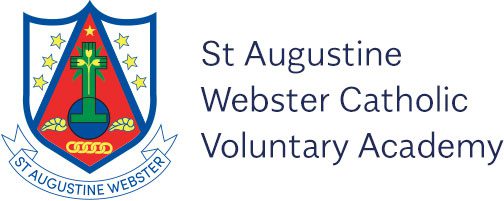At St Augustine Webster Catholic Voluntary Academy we have a strong sense of community and are committed to our Christian virtues. We teach Religious Education as a reigorous academic discipleine using the ‘Come and See’ scheme which allows children to explore the teachings of the Catholic church. We teach the children Gospel values, so that they become well rounded individuals with both social and academic skills to empower them for the future. This is celebrated through a regular program of Prayer and Liturgy. Children are encouraged to take ownership of Celebration of the Word and contribute to planning and delivering prayer and reflection. In choosing St Augustine Webster Catholic Voluntary Academy, you will therefore make a commitment to work closely with the school and Parish, in the formation of faith.
Catholic Life
Encounter
I would like to ensure that people of all ages in our parishes, schools, and chaplaincies are helped to discover, or discover more deeply, the importance of a personal encounter with Christ; so that they can become convinced that they are each loved by God and are invited to grow in their relationship with him. In particular I would like to see the development of times of Eucharistic Adoration in our parishes, schools and chaplaincies.
Discipleship
Because of that personal encounter with Christ, I would like to encourage each of us to hear and respond to his invitation to be his disciples, to follow him more closely, and to seek to serve him generously in our daily lives.
Missionary Discipleship
With a greater recognition of, and openness to, the help, guidance and inspiration of the Holy Spirit, we can all become missionary disciples; faith-filled, joyful and outward-looking Christians who are growing in confidence to speak humbly of the difference that knowing Christ makes to our lives, and who bear witness to His love in our service of our brothers and sisters, especially those most in need. The service to which Christ calls us is always the action of the Holy Spirit working in us.
Catholic Social Teaching
Catholic Social Teaching is founded in Scripture and includes statements and letters written by Church leaders. It offers wisdom and insights on living the Gospel in today’s world. Jesus tells us to love God and to love our neighbours, especially our sisters and brothers living in poverty. We use Catholic Social Teaching principles to guide our work in school.
Modern Catholic Social Teaching is said to have originated in 1891 with the encyclical letter, Rerum Novarum. Since then, a wealth of teaching continues to give new life to the Scriptures and shape the Church’s response to our modern world. Pope Francis continues to add to Catholic Social Teaching with his own encyclicals, including Laudato Si’ (2015) and Fratelli Tutti (2020). From these Catholic Social Teaching documents and encyclicals we derive core principles. There is no fixed or official list of principles.
As a school we have adopted the follwoing principles:
Human Dignity
The Common Good
Participation
Subsidiarity
Stewardship
Solidarity
Preferential Option for the Poor
Distributive Justice
Promoting Peace
Social, Moral, Spiritual and Cultural Development
As a Catholic School the four elements of Social, Moral, Spiritual and Cultural development are all linked and are intrinsic in all that we do. In order to allow children to flourish and reach their full potential, St Augustine Webster provides the children with the tools required for their future, so they can live life to the full and engage in their role as global citizens. In conjunction with our school Virtues, SMSC education is to be “lived out”.
Spiritual Development
Alongside Catholic teaching, prayer and liturgy is led not only by adults and the Chaplaincy Team but all pupils have the opportunity to lead prayer and liturgy in their classrooms. They plan and prepare prayer and liturgy using a wide range of resources including Let Us Pray 2 from NDCYS.
Assemblies, plays and liturgies are held to mark significant events like Remembrance Sunday, Harvest and The Nativity.
Masses are prepared to share with the parishioners, parents and friends.
Liturgies and masses are celebrated by the parish priest. Children learn about other faiths from our RE teaching
Moral Development
Is addressed through social teaching to enable children to recognise injustice and inequalities both locally and globally. Children donate and collect items to support the Scunthorpe community Forge Project, CAFOD and Stella Maris.
Children are given opportunities to explore moral concepts through RSE materials, Sports Force training, Eco Committe training School council training, E-Safety Week, CAFOD universal Church topics and Community police visits.
The development of Fundamental British Values is a high prirotity and has been carefully mapped out across the curriculum (See British Values page)
Social Development
Peer support and social development in school is supported by Sports Force Leaders, Reading Ambassadors, Chaplaincy Team, Lunchtime Helpers and School Councillors.
Children are keen to support the community: they play an active role in promoting ‘World Peace Day’ and ‘Holocaust Memorial Day’.
Children are keen to commit to being global through fundraising events for CAFOD and the Ukraine Appeal.
Regular scheduled and visitors into school help develop pupil’s engagement in different cultural experiences. (See Cultural Capital Page)





